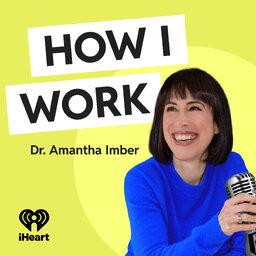Ruthless prioritization with Google's Executive Productivity Advisor, Laura Mae Martin
Laura Mae Martin has my dream job - she is Google’s Executive Productivity Advisor. Her job is to advise the top folk at Google on how to be more productive. In this chat, we cover:
* Ruthless Prioritisation: the importance of saying no to good things to make room for great things.
* Sunday Planning Ritual: Laura’s ritual of planning the upcoming week every Sunday, and her exact process for doing this.
* List Funnels: a method to manage tasks by categorising and prioritising them to ensure nothing falls through the cracks.
* Downtime: the critical role of downtime in productivity, with Laura sharing her practice of "No Tech Tuesday" to disconnect and recharge.
* Generative AI in Productivity: how generative AI tools can augment productivity, automating routine tasks and freeing up time for more strategic work.
* And much, much more…
Get a copy of Laura’s new book Uptime.
My new book The Health Habit is out now. You can order a copy here: https://www.amantha.com/the-health-habit/
Connect with me on the socials:
Linkedin
Instagram
If you are looking for more tips to improve the way you work and live, I write a weekly newsletter where I share practical and simple to apply tips to improve your life. You can sign up for that at howiwork.co
Visit https://www.amantha.com/podcast for full show notes from all episodes.
Get in touch at amantha@inventium.com.au
Credits: Host: Amantha Imber
Sound Engineer: Martin Imber Episode
Producer: Rowena Murray
In 1 playlist(s)
How I Work
You know those annoyingly successful people who seem to have it all figured out? Time to steal their…Social links
Follow podcast
Recent clips

BEST OF: Want to make time for the things that count? Oliver Burkeman has your time management answers
34:46

BEST OF: I burnt out completely last year. This is how I recovered.
27:41

BEST OF: The People-Pleasing Trap: How Laura Henshaw escaped it (and how you can too)
35:19
 How I Work
How I Work